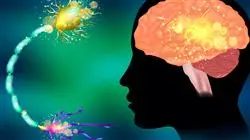University certificate
Scientific endorser

The world's largest faculty of psychology”
Introduction to the Program
The deep knowledge of Research in Educational Neuropsychology and its multiple implications, in a complete Professional master’s degree created to propel you to another professional level"

The work in neuropsychology is complex. It covers a broad spectrum of intervention that requires the professional to have very specific training in the various branches of brain development. This discipline, deeply linked to neurology and the physiological study of the brain, is affected by the changes that the evolution of knowledge in this scientific branch achieves. For professionals, this means an intense challenge of continuous updating that allows them to be at the forefront in terms of approach, intervention and monitoring of the cases that may arise in their practice.
Throughout this program, the student will go through all the current approaches in the field of neuropsychological research, from the basic starting points to the application of conclusions and the materialization of novel interventions.
With a fundamentally practical approach, this Professional master’s degree will allow students to develop their own project during the specialization, becoming not only a moment of study, but also a time for acquiring experience.
A high level step that will become a process of improvement, not only on a professional level, but also on a personal level.
This challenge is one of TECH social commitments: to help prepare highly qualified professionals and develop their personal, social and labor competencies during the course.
This challenge is one of TECH social commitments: to help prepare highly qualified professionals and develop their personal, social and labor competencies during the course. TECH works to maintain motivation and to create a passion for learning. It also encourages thinking and the development of critical thinking.
A program created for professionals who aspire to excellence and that will allow them to acquire new skills and strategies in a smooth and effective way”
The Professional master’s degree in Research in Educational Neuropsychology contains the most complete and up-to-date educational program on the market. The most important features include:
- The latest technology in online teaching software
- A highly visual teaching system, supported by graphic and schematic contents that are easy to assimilate and understand
- Practical cases presented by practising experts
- State-of-the-art interactive video systems
- Teaching supported by telepractice
- Continuous updating and recycling systems
- Autonomous learning: full compatibility with other occupations
- Practical exercises for self evaluation and learning verification
- Support groups and educational synergies: questions to the expert, debate and knowledge forums
- Communication with the teacher and individual reflection work
- Content that is accessible from any fixed or portable device with an Internet connection
- Complementary documentation banks permanently available, even after the course
A deep and complete immersion in the strategies and approaches of the Neuropsychology of Education"
Our teaching staff is made up of working professionals. That way, TECH ensures to offer the updating objective it intends to provide. A multidisciplinary team of doctors trained and experienced in different environments, who will develop the theoretical knowledge in an efficient way, but, above all, will put at the service of the course the practical knowledge derived from their own experience: one of the differential qualities of this Professional master’s degree.
This mastery of the subject is complemented by the effectiveness of the methodology used in the design of this Professional master’s degree. Developed by a multidisciplinary team of e-learning experts, it integrates the latest advances in educational technology. In this way, the students will be able to study with a set of comfortable and versatile multimedia tools that will give them the operability they need in their training.
The design of this program is based on Problem-Based Learning: an approach that conceives learning as a highly practical process. To achieve this remotely we will use telepractice: with the help of an innovative interactive video system and Learning from an Expert, the students will be able to acquire the knowledge as if they were facing the scenario they are learning at that moment. A concept that will make it possible to integrate and fix learning in a more realistic and permanent way.
The sensory systems of the human being studied from the neuropsychologist's point of view, with the goal for intervention and improvement"

The processes and developments of a complete Neuropsychology of Education Research in an intensive and effective education program"
Why study at TECH?
TECH is the world’s largest online university. With an impressive catalog of more than 14,000 university programs available in 11 languages, it is positioned as a leader in employability, with a 99% job placement rate. In addition, it relies on an enormous faculty of more than 6,000 professors of the highest international renown.

Study at the world's largest online university and guarantee your professional success. The future starts at TECH”
The world’s best online university according to FORBES
The prestigious Forbes magazine, specialized in business and finance, has highlighted TECH as “the world's best online university” This is what they have recently stated in an article in their digital edition in which they echo the success story of this institution, “thanks to the academic offer it provides, the selection of its teaching staff, and an innovative learning method aimed at educating the professionals of the future”
A revolutionary study method, a cutting-edge faculty and a practical focus: the key to TECH's success.
The most complete study plans on the university scene
TECH offers the most complete study plans on the university scene, with syllabuses that cover fundamental concepts and, at the same time, the main scientific advances in their specific scientific areas. In addition, these programs are continuously being updated to guarantee students the academic vanguard and the most in-demand professional skills. In this way, the university's qualifications provide its graduates with a significant advantage to propel their careers to success.
TECH offers the most comprehensive and intensive study plans on the current university scene.
A world-class teaching staff
TECH's teaching staff is made up of more than 6,000 professors with the highest international recognition. Professors, researchers and top executives of multinational companies, including Isaiah Covington, performance coach of the Boston Celtics; Magda Romanska, principal investigator at Harvard MetaLAB; Ignacio Wistumba, chairman of the department of translational molecular pathology at MD Anderson Cancer Center; and D.W. Pine, creative director of TIME magazine, among others.
Internationally renowned experts, specialized in different branches of Health, Technology, Communication and Business, form part of the TECH faculty.
A unique learning method
TECH is the first university to use Relearning in all its programs. It is the best online learning methodology, accredited with international teaching quality certifications, provided by prestigious educational agencies. In addition, this disruptive educational model is complemented with the “Case Method”, thereby setting up a unique online teaching strategy. Innovative teaching resources are also implemented, including detailed videos, infographics and interactive summaries.
TECH combines Relearning and the Case Method in all its university programs to guarantee excellent theoretical and practical learning, studying whenever and wherever you want.
The world's largest online university
TECH is the world’s largest online university. We are the largest educational institution, with the best and widest online educational catalog, one hundred percent online and covering the vast majority of areas of knowledge. We offer a large selection of our own degrees and accredited online undergraduate and postgraduate degrees. In total, more than 14,000 university degrees, in eleven different languages, make us the largest educational largest in the world.
TECH has the world's most extensive catalog of academic and official programs, available in more than 11 languages.
Google Premier Partner
The American technology giant has awarded TECH the Google Google Premier Partner badge. This award, which is only available to 3% of the world's companies, highlights the efficient, flexible and tailored experience that this university provides to students. The recognition as a Google Premier Partner not only accredits the maximum rigor, performance and investment in TECH's digital infrastructures, but also places this university as one of the world's leading technology companies.
Google has positioned TECH in the top 3% of the world's most important technology companies by awarding it its Google Premier Partner badge.
The official online university of the NBA
TECH is the official online university of the NBA. Thanks to our agreement with the biggest league in basketball, we offer our students exclusive university programs, as well as a wide variety of educational resources focused on the business of the league and other areas of the sports industry. Each program is made up of a uniquely designed syllabus and features exceptional guest hosts: professionals with a distinguished sports background who will offer their expertise on the most relevant topics.
TECH has been selected by the NBA, the world's top basketball league, as its official online university.
The top-rated university by its students
Students have positioned TECH as the world's top-rated university on the main review websites, with a highest rating of 4.9 out of 5, obtained from more than 1,000 reviews. These results consolidate TECH as the benchmark university institution at an international level, reflecting the excellence and positive impact of its educational model.” reflecting the excellence and positive impact of its educational model.”
TECH is the world’s top-rated university by its students.
Leaders in employability
TECH has managed to become the leading university in employability. 99% of its students obtain jobs in the academic field they have studied, within one year of completing any of the university's programs. A similar number achieve immediate career enhancement. All this thanks to a study methodology that bases its effectiveness on the acquisition of practical skills, which are absolutely necessary for professional development.
99% of TECH graduates find a job within a year of completing their studies.
Professional Master's Degree in Educational Neuropsychology Research
The scope of neuropsychology in the educational system has proven to be invaluable, both for its interventions in the cases of students with cognitive dysfunctions, as well as for its multiple contributions to the optimization of pedagogical models. The development of this discipline, where psychology and neurosciences converge, represents a door to the progress of teaching in its most illustrious sense. It is for this reason that at TECH Global University we devised the Professional Master's Degree in Research in Neuropsychology of Education: a complementary program to the work of psychologists that aims not only to update and deepen the knowledge about brain structures along with their emotional-behavioral nexus, but also to provide new theoretical and practical approaches and research schemes to improve learning methodologies in the classroom. This is established in a completely online format that allows you to manage your time and pace of study, based, in addition, on a novel and immersive teaching model. If you are looking to give your career a satisfying boost, TECH is the answer.
Study a Professional Master's Degree in Neuropsychology for Education
Continuous discoveries about the way the brain interacts with the outside world lead to new paradigms in the approach and understanding of the various mental processes. Professionals in areas that base their work on aspects of the mind such as cognition (psychology and teaching, for example) therefore need to be constantly updated. In this sense, our Professional Master's Degree will serve you as an ideal axis of professional growth, since you can even combine your training with other activities due to its flexible system. About the topics to be covered, you will see ten modules in total covering: neuroscience bases; memory processes, skills and TICS; motor skills, laterality and writing; neurolinguistic processes, difficulties and intervention programs; dyslexia, dyscalculia and hyperactivity, among other interesting concepts that will be of great help. We encourage you to enroll with us and find out why we are ranked as one of the best online universities worldwide.







